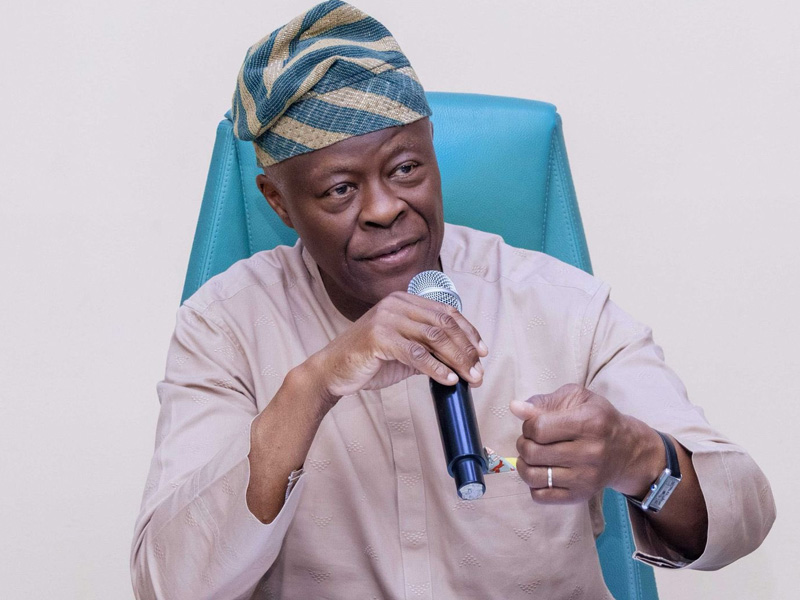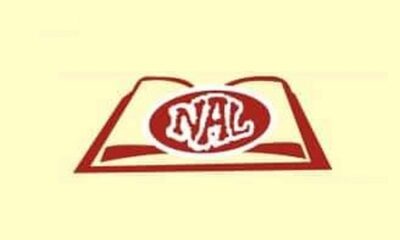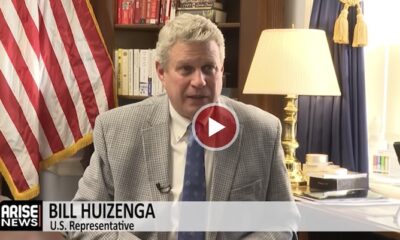Business
Nigeria’s Inflation Rate Declines to 20.12% as Government Halts Import Levy

Nigeria’s inflation rate decreased to 20.12% in August 2025, down from 21.88% in July. This significant drop was reported by the National Bureau of Statistics (NBS) on September 15, 2025, coinciding with the government’s decision to suspend a 4% import levy imposed by the Nigeria Customs Service.
The Minister of Finance and Coordinating Minister of the Economy, Wale Edun, announced the suspension in a letter directed to the Comptroller-General of Customs, stating that the decision results from extensive consultations with industry stakeholders and trade experts. Edun emphasized the challenges that the levy posed to trade facilitation and economic stability, noting concerns raised by importers regarding its financial impact.
In his correspondence, Edun urged compliance with the suspension, which aims to facilitate a comprehensive review of the levy’s framework and its broader economic implications. He expressed the ministry’s commitment to devising a more equitable revenue structure that supports economic growth while ensuring sustainable revenue generation.
The NBS reported that the year-on-year headline inflation rate stood at 12.03%, significantly lower than the 32.15% recorded in August 2024. The decline was attributed to moderation in food and energy prices during the review month. The Consumer Price Index (CPI) indicated that inflation decreased by 1.76% percentage points compared to the previous month, marking a positive trend in the economic landscape.
Key Inflation Trends and Effects
The CPI report for August indicated a month-on-month inflation rate of 0.74%, a reduction from 1.99% in July. Food inflation also saw a notable decline, dropping to 21.87% year-on-year in August, compared to 37.52% in the same period of 2024. This change was partly due to the adjustment in the base year for inflation calculations.
The statistical agency further noted that the average prices of essential food items, including rice and maize flour, contributed to this decline. The month-on-month food index decreased to 1.65% in August from 3.12% in July, reflecting a broader trend of falling food prices that benefits consumers.
Core inflation, which excludes volatile food and energy prices, also registered a decline, standing at 20.33% year-on-year in August, down from 27.58% in the same month last year. Month-on-month, the core index rose to 1.43%, compared to 0.97% in July.
Urban inflation was measured at 19.75% year-on-year, significantly lower than 34.58% in August 2024. Conversely, rural inflation was at 20.28%, down from 29.95% in the previous year.
State-Level Variations
At the state level, year-on-year headline inflation was highest in Ekiti (28.17%), Kano (27.27%), and Oyo (26.58%). In contrast, Zamfara (11.82%), Anambra (14.16%), and Enugu (14.20%) reported the lowest inflation rates. Month-on-month, the most significant increases were observed in Yobe (9.20%), Katsina (8.59%), and Sokoto (6.57%), while declines were noted in Enugu (-5.32%) and Taraba (-3.64%).
Food inflation also exhibited notable state-level variations. It was highest in Borno (36.67%), Kano (30.44%), and Akwa Ibom (29.85%), while the slowest increases were recorded in Zamfara (3.30%) and Yobe (3.60%). Month-on-month food inflation rates were highest in Kaduna (9.37%) and Katsina (9.05%), with declines seen in Bayelsa (-9.52%) and Sokoto (-8.92%).
The suspension of the 4% Free on Board (FOB) charge was enacted under the authority granted by the Nigeria Customs Service Act, 2023. This decision follows a previous suspension announced on February 11, 2025, which was met with resistance from stakeholders. The Nigeria Customs Service highlighted the need for ongoing consultations with the Minister of Finance and relevant parties to ensure effective implementation of customs operations and modernization efforts.
The latest directive appears to halt the implementation of this charge, reflecting a broader intention to enhance the alignment of customs revenue frameworks with the economic realities faced by Nigerian businesses.
The Ministry of Finance’s proactive approach seeks to stabilize the business environment while addressing the concerns of stakeholders within the trade sector. The government aims to foster a more conducive atmosphere for economic growth amid ongoing challenges in the global market.
-

 Entertainment3 months ago
Entertainment3 months agoAnn Ming Reflects on ITV’s ‘I Fought the Law’ Drama
-

 Entertainment4 months ago
Entertainment4 months agoKate Garraway Sells £2 Million Home Amid Financial Struggles
-

 Health3 months ago
Health3 months agoKatie Price Faces New Health Concerns After Cancer Symptoms Resurface
-

 Entertainment3 months ago
Entertainment3 months agoCoronation Street’s Carl Webster Faces Trouble with New Affairs
-

 Entertainment2 months ago
Entertainment2 months agoWhere is Tinder Swindler Simon Leviev? Latest Updates Revealed
-

 Entertainment4 months ago
Entertainment4 months agoMarkiplier Addresses AI Controversy During Livestream Response
-

 Science1 month ago
Science1 month agoBrian Cox Addresses Claims of Alien Probe in 3I/ATLAS Discovery
-

 Entertainment4 months ago
Entertainment4 months agoKim Cattrall Posts Cryptic Message After HBO’s Sequel Cancellation
-

 Entertainment2 months ago
Entertainment2 months agoOlivia Attwood Opens Up About Fallout with Former Best Friend
-

 Entertainment3 months ago
Entertainment3 months agoMasterChef Faces Turmoil as Tom Kerridge Withdraws from Hosting Role
-

 Entertainment4 months ago
Entertainment4 months agoSpeculation Surrounds Home and Away as Cast Departures Mount
-

 World2 months ago
World2 months agoCole Palmer’s Mysterious Message to Kobbie Mainoo Sparks Speculation





















